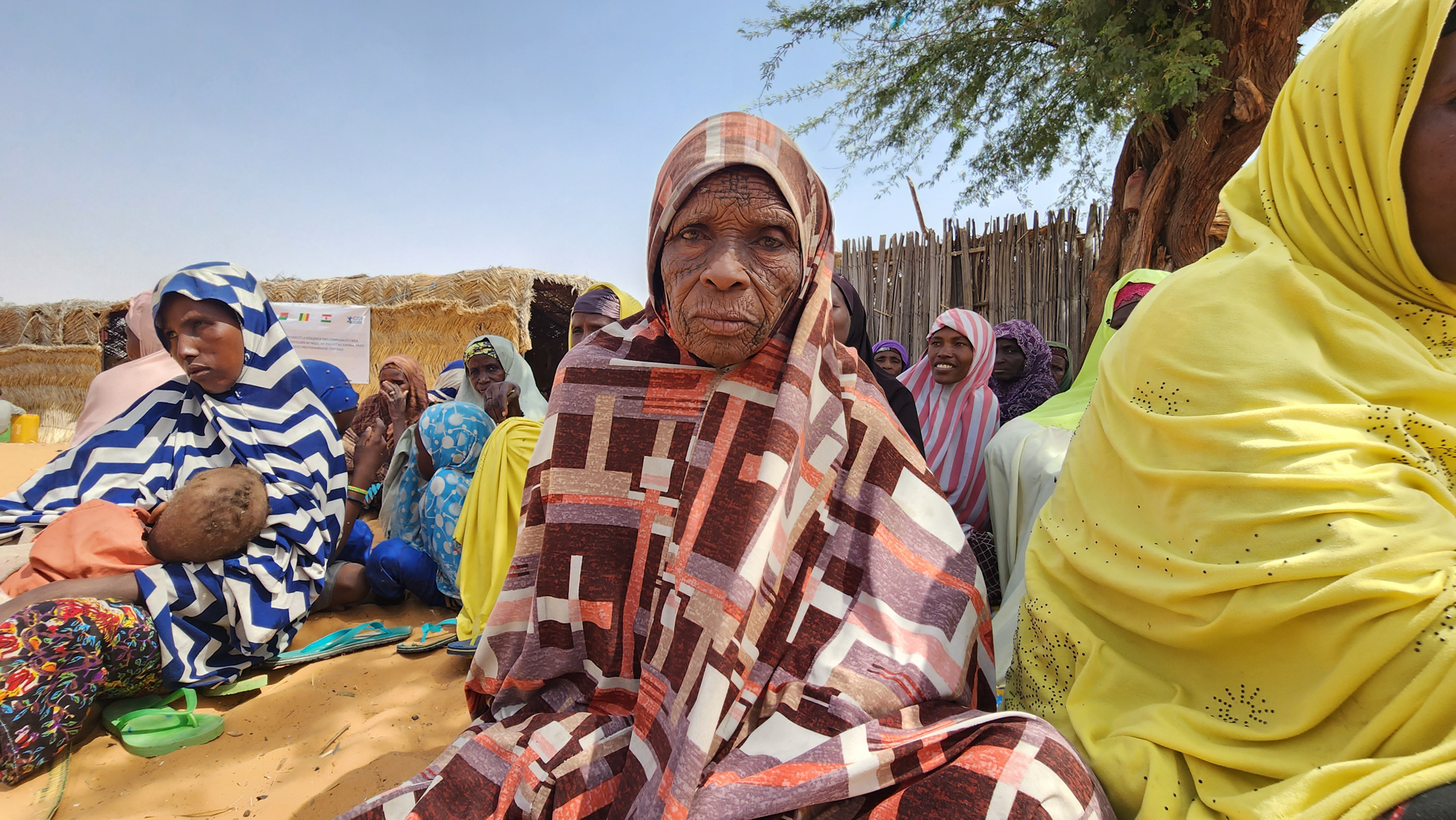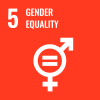Toudou Wada (Diffa region), 23 November 2023 – High atop the hill of Toudou Wada, a village-like community in Southeast Niger, Gana Ousmane is ready for a new day of voluntary work. As a displaced woman, she is on the field alongside dozens of others around a seko, a thatched-roof shelter, with a palpable sense of both hope and vulnerability hanging in the air.
Each newcomer is handed a numbered ticket, leading them to large mats beneath the shade of towering trees, offering respite from the scorching morning sun. Their numbers rise from 10 to 20, then 30, until approximately a hundred people assemble. They all assemble here, awaiting access to health assistance from a mobile clinic currently on its way.
“The mobile clinic offers the women a multitude of services. Before its arrival, many couldn't afford consultations,” says Gana. “Even those who could afford gynecological check-ups often couldn't reach them on time due to long queues at the maternity clinic, forcing them to turn back.”

Gana Ousmane, representative of the displaced women of Toudou Wada village. Photo: IOM 2022/Aïssatou Sy
Since 2022, the International Organization for Migration (IOM) has collaborated with Cooperazione Internazionale (COOPI) to bring community-based medical care, particularly addressing Gender-Based Violence (GBV), to those fleeing violence by armed groups in the remote communes of the Diffa region in Niger.
This includes the village of Toudou Wada, situated in the Mainé Soroa commune, where the mobile clinic operates six days a week. The camp is made up of around 3,100 people, including both Nigeriens and a few Nigerian refugees across 517 households that had to escape the violence at the border with Nigeria during the Lake Chad Basin crisis in 2015.
The deployment of mobile clinics alleviates the strain on state health-care facilities, burdened by the influx of people seeking refuge. Operational in the commune of Mainé Soroa since April 2022, the mobile clinic significantly supports the district hospital and the urban integrated health centre, offering medication donations, joint supervision missions, logistical support, and deploying mobile clinics in remote areas.

Populations receive tickets to be consulted at the mobile clinic in the Toudou Wada village. Photo: IOM 2022/Aïssatou Sy
"The mobile clinic provides much needed assistance,” says Dr. Ismael Yelami, COOPI Health Project Manager. “Mental health support is integral, particularly for women facing increased vulnerability, experiencing post-traumatic disorders, psychosis, and depression. Therefore, our additional protection efforts primarily focus on women and children."
A central objective of the mobile clinics is to provide interventions and GBV response services and offer specialized programmes to address conflict-related gender violence and various forms of GBV affecting crisis-affected populations.
Gana Ousmane actively contributes to the mobile clinic programme, ensuring that all women can access these services.

The village of Toudou Wada is located in the Maine Soroa commune. Photo: IOM 2022/Aïssatou Sy
With the presence of the mobile clinic, access to reproductive health consultations and mental health support for women battling depression and psychosis has significantly improved. Women also benefit from protection services aimed at preventing GBV and supporting survivors.
“Almost two-thirds of the women have benefited from protection interventions,” says Gana. “In many cases, this involves domestic violence, physical abuse, verbal harassment, denial of services, and, if they have resources, their husbands can take their money without providing anything in return.”
According to her, many children were also spared from forced and early marriages thanks to awareness campaigns organized within the framework of the mobile clinic’s initiative. Clinical management of rape (CMR) was provided, along with distribution of dignity kits and mental health support. Slowly, women are beginning to heal from their traumatic experiences, and their situations are stabilizing.
"Women feel more protected now," concludes Gana.

Women waiting to be consulted at the mobile clinic in the Toudou Wada village. Photo: IOM 2022/Aïssatou Sy
“The mobile clinics provide medical care, psychosocial support, and protection services and referral to a significant number of people, facilitating access to survivor-centred services,” says Idrissa Sompare, IOM Chief of Mission in Niger.
“The initiative aims to support resilience, and recovery of survivors by promoting accessibility of survivor-centered services for all GBV survivors and prioritizing the needs of women and girls, while ensuring their safety and dignity alongside that of all the crisis-affected populations."
The mobile clinics have provided medical and psychosocial support and protection to over 26,000 people in the Diffa region including vulnerable women between January 2022 and June 2023.
The mobile clinics initiative is implemented within the project “Improving Border Management and Community Resilience towards Cross-Border Organized Crime in Niger, Mali, and Burkina Faso with a Focus on the Central Mediterranean Route” funded by the Italian Ministry of Foreign Affairs and International Cooperation.



